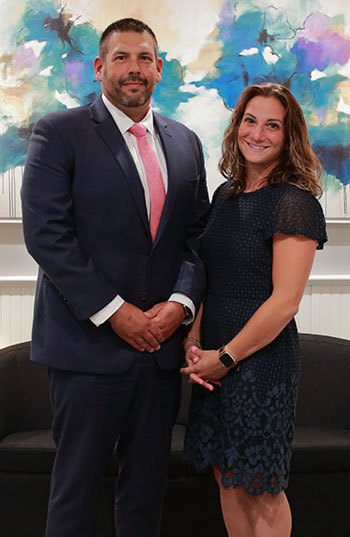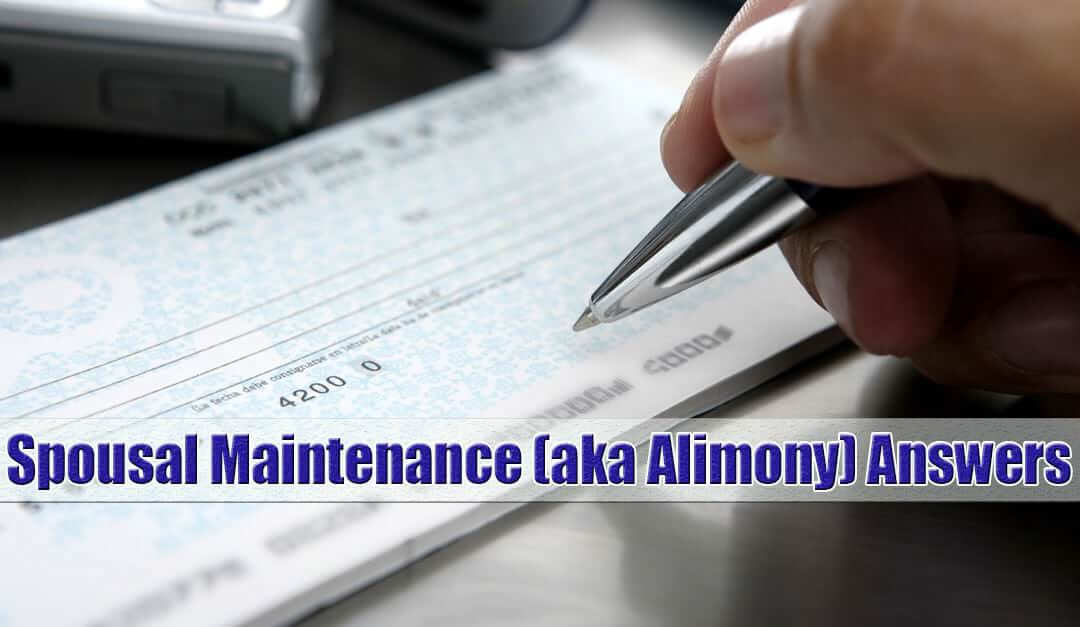As a Long Island Divorce Attorney, one of the main issues I have to address with my clients concerns Spousal Maintenance, sometimes called Alimony. Below are answers to some of the most frequently asked questions I hear.
What is Spousal Maintenance or Alimony?
Spousal maintenance are payments made by the higher earning spouse to the lower earning spouse in a divorce. Many people may know it as alimony, though it is not technically called alimony in New York State. It is intended to ensure that both spouses have an adequate standard of living during the pendency of and after their divorce. Spousal maintenance might be temporary and may be paid during the pendency of a divorce, or might be ordered to continue post-divorce.
Is Spousal Maintenance the Same Thing as Spousal Support?
No, spousal maintenance is not the same thing as spousal support. Spousal support refers to payments made to the lower earning spouse during marriage, and usually results from a separation agreement. Spousal support terminates when a judgment of divorce is entered.
What is Temporary Spousal Maintenance & How is it Calculated?
Temporary spousal maintenance is spousal maintenance that is awarded while the divorce is pending. In cases where child support is not also being paid, a Suffolk County or Nassau County Court will do two separate calculations and compare the results to determine the amount of temporary spousal maintenance. The formulas are as follows:
- First, twenty percent (20%) of the payee spouse’s income will be subtracted from thirty percent (30%) of the payor spouse’s income.
- Then, the payee spouse’s income will be subtracted from forty percent (40%) of the total combined spousal income.
- Finally, the payee spouse will be awarded spousal maintenance based upon the lower of the two above calculations.
However, courts are not bound by this formula, and if it determines the award is too high or too low it can deviate from the guidelines and award the amount it deems appropriate. Further, if the payor spouse’s income is above $175,000, the court will nevertheless use a maximum of $175,000 to calculate the amount of support, but can deviate from this formula if it determines it to be necessary.
What if I Also Have to Pay Child Support?
In cases where the payor spouse is responsible for both spousal maintenance and child support, the formula is different.
- The first formula is as follows: twenty-five percent (25%) of the payee’s income will be subtracted from twenty percent (20%) of the payor’s income.
- The second calculation is as follows: the sum of the payor’s income and the payee’s income will be multiplied by forty percent (40%), and the payee’s income will be subtracted from the result.
- The payee spouse will be awarded the lower of the two amounts.
Again, if the payor spouse’s income is above $175,000, the court will plus a maximum of $175,000 into this formula, but can deviate from the formula if it deems necessary.
This variation of the original formula gives a spouse who is responsible for both child support and spousal maintenance a break from the full demands of paying both spousal maintenance and child support.
What About Post-Divorce Maintenance? How Much Will I Have To Pay & for How Long?
Post-Divorce Spousal Maintenance is the regular payments awarded to be paid to one spouse by another for a specified period of time. The calculation of a post-divorce spousal maintenance award is based upon all the same formulas as the temporary maintenance standard. Like the temporary maintenance formula, it takes into account whether the payor spouse is also paying child support, and adjusts the maintenance amount accordingly. It also factors in a maximum of $175,000 for income.
The duration of post-divorce maintenance is calculated with another formula based on the length of the marriage. For marriages that lasted up to and including 15 years, maintenance is awarded for 15% to 30% of the length of the marriage. For marriages that lasted for more than 15 years up to and including 20 years, maintenance is awarded for 30% to 40% of the length of the marriage. For marriages which lasted more than 20 years, the duration of the award is 35% to 50% of the length of the marriage.
However, it is important to remember that courts in Nassau County and Suffolk County have discretion to adjust the duration, or award non-durational maintenance in appropriate cases. The court can consider any factors that it deems relevant and justified in your situation in order to make this determination.
How Can I Modify My Spousal Maintenance Order?
Courts may modify a spousal maintenance award if there is a substantial change in circumstances. For example, if the payor spouse lost his/her job, experienced a pay cut, or had a sudden illness, or if the receiving spouse is cohabitating in a new relationship, gets remarried, or became self-supporting, the court may decide to change the award.
A court can also modify the award if at least three years have passed since the award was ordered or modified, and there has been a 15% or greater change in either spouse’s income. The party seeking the modification would need to petition the court and ask for the court to change it.
Finally, remember that maintenance payments terminate upon the death of either spouse or the remarriage of the payee (recipient) spouse.
Have More Questions About Spousal Maintenance? Contact the Experienced Divorce Attorneys at Hornberger Verbitsky, P.C.
To learn more about what you need to know about spousal maintenance (alimony) on Long Island and how to get help to protect yourself and your future visit this page: Spousal Maintenance / Alimony on Long Island, NY. If you have additional questions about spousal maintenance in New York, contact the Family Law Office of Robert E. Hornberger, Esq., P.C. at 631-923-1910 to schedule your free initial consultation today.
See this page for Your Guide to Preparing for a Contested Divorce.
GET YOUR FREE CONSULTATION TODAY
Call 631-923-1910 or fill in the form below

Horberger Verbitsky, P.C. partners Robert E. Hornberger, Esq. and Christine M. Verbitsky, Esq.
Get your complimentary consultation and case evaluation with our experienced attorneys today.
Your attorney will describe the many options available and determine together which is the right solution for you. By the end of this conversation, we’ll all understand how we can best help you to move forward.
No Cost or Obligation
There is no cost or obligation for this initial consultation. It is simply an opportunity for us to get to know each other, answer your questions and learn if Hornberger Verbitsky, P.C. is right the right law firm for you. Give us a call at 631-923-1910 or fill in the short form below for your free consultation and case evaluation.
All Fields Are Required















